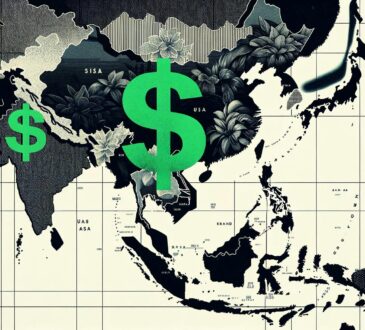
What’s going on here?
Emerging Asian currencies like the Malaysian ringgit and Indonesian rupiah are under pressure as the US dollar gains on strong economic data and election developments hinting at a potential Trump comeback.
What does this mean?
The stronger US dollar, reaching levels not seen since August, is influencing Asian markets on the back of upbeat US economic conditions and polls suggesting a Trump resurgence. The Malaysian ringgit and Indonesian rupiah, leading the currency downturn, highlight regional vulnerabilities. Indonesia, under its new president Prabowo Subianto, seeks stability by keeping its finance minister in place. Analysts suggest a Trump win might boost the dollar further, possibly raising US bond yields and increasing pressure on emerging currencies. The Philippine central bank trimmed interest rates by 25 basis points, Bank Indonesia held steady, while Thailand surprised with a cut, stating it’s not setting a trend. Investors are keenly watching Malaysia’s monetary policy updates on November 6 for further insights.
Why should I care?
For markets: Currencies dancing to the dollar’s tune.
The strengthening US dollar is casting a shadow over Asian currencies, heightening volatility in emerging markets. Rising US bond yields, anticipated with a potential Trump return, could spell further depreciation for these currencies. Regional stocks reflecting Wall Street’s dip saw South Korea’s equities fall 1.3% and Thailand’s slide 0.4%. Investors should watch upcoming economic reports from Singapore and Malaysia for signs of market shifts.
The bigger picture: A game of economic chess.
Emerging Asian markets are particularly susceptible to global political and economic fluctuations. A Trump-led dollar surge could worsen debt repayment challenges for these economies, strained by their dollar-denominated liabilities. As major central banks adjust policies in response, sustainable fiscal strategies will be crucial for maintaining stability amid global economic changes.




